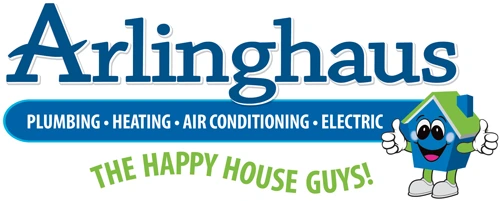Although most homes and properties gain value over time, property value depreciation is definitely a thing, and without regular maintenance and care, your home can lose its value over time. The best solution is to keep your home clean and maintained with regular repairs and professional service as needed. When you perform these important tasks on a regular basis, you prevent small problems from turning into a ticking time bomb that could go off at any time.
1. Clean and Declutter
Many home concerns can lie hidden from sight, and a cluttered home or garage only make it that much harder to fix these issues when they first start. Stacked boxes against walls can hide mold and water damage and provide a safe haven for insects and rodents. Covered supply vents can cause condensation to form, which can eventually cause mold buildup. Mold damage can trigger property value depreciation by as much as 25 percent or even more. Declutter on a routine basis and make sure you have appropriate storage for seasonal household goods and equipment. With regular, thorough cleaning and decluttering you’ll spot any issues long before they become major problems, which depreciate the value of your home.
2. Fix Small Repairs Immediately
The dent in the drywall from a doorknob, the cracked tile in the bathroom from a dropped hairdryer, the banged up corner to the hallway, the flaking paint on the front door…these are minor repairs most of us simply stop seeing. But prospective homebuyers will see them immediately. These minor cosmetic issues may not lower your property value much, but you’ll never get another chance at a first impression. The best plan is to make small repairs as soon as possible because the longer you wait to fix them, the more likely it is you will forget about it.
Much worse is when the small problem turns into a big problem with a higher bill. Take your air conditioner, for example. If it has a clogged condensate drain, needs more refrigerant or another small repair, you will pay about $316 on average for the service. Balance that against $5,200 to replace the air conditioner and the cost of hiring an HVAC technician becomes an excellent idea.
3. Maintain the Driveway
When someone comes to your house for the first time, what they see should surprise and delight them. If the driveway is cracked and discolored from rust and oil stains, these cosmetic aspects of your home’s exterior can really hurt your resale value if they look truly unsightly. Make a plan to keep debris and chemicals off of your driveway, by sweeping and washing it regularly. Make sure as the driveway settles the grade turns away from your home, to avoid floodwater collecting on your foundation. Arrange to have cracks sealed at least once a year to avoid the hassle of having to pay on average $7,400 to replace the whole driveway.
4. Check Roof and Gutters
Your roof supports winter snow and ice and generally keeps the elements from raining down on you. Without regular maintenance, your roof can become a major liability and decrease the value of your home. Consider your gutters. If they are full of leaves and are not cleared out, the gutters cannot funnel rainwater away from your home. A dirty roof clogs the gutters more easily. Standing water in the gutters attracts mosquitoes in summer, and can destroy your gutters (or even your roof) in winter. Replacing a few broken tiles or shingles costs a bit over $600, depending on the amount of damage and the roofing materials you prefer. Taking off your entire roof and putting on a new one will set you back about $11,000, by comparison.
5. Take Care of Your Lawn
Like your driveway, your lawn shows everyone how much you care for your house. It can also hide problematic issues that can depreciate the value of your property. You may have a sprinkler or drip irrigation system that makes lawn care easier. However, if you do not attend to your watering system at least once during the season, you put your home at risk. Since they sit low to the ground and under foot, sprinklers are prone to picking up problems. A leak in your outdoor plumbing can run water into your home as well as kill a portion of your lawn or garden. Clogged pipes may burst, damaging your landscape and costing you hundreds or thousands to replace. A little attention every week to your lawn, through mowing, pruning and checking on your sprinkler system, makes for a great lawn not to mention a great first impression to prospective homebuyers.
6. Seal Cracks and Air Leaks
It is right about this time of year that people really begin to suffer from seasonal allergies. Did you know that your home could be making it worse? In the absence of a filter like you have for your heating and cooling system, air leaks let everything in. This includes moisture, debris, allergens and pollutants. Air leaks also cause as much as a third of the conditioned air to escape your home, which costs you money. Sealing the cracks around your windows and doors with caulking and weatherstripping is a simple solution. This quick task can save you 14 percent on your energy bills monthly and makes your home more attractive to future homebuyers.
7. Inspect and Repair Plumbing
Plumbing issues are a wild card in home maintenance. A dripping faucet can cost you thousands of gallons in wasted water each year, which averages out to $35 a year. However if your water heater bursts and sends hundreds of gallons of water into your basement, you have a completely different world of repair costs. Fixing a leaking water heater will cost you about $500. Replacing drywall and flooring in a finished basement or other room costs tens of thousands of dollars. Think like a home inspector and look at your plumbing through that lens, to better understand how others view your home, and how major plumbing issues can depreciate the value of your home.
8. Test and Repair Wiring
If you have an old electrical system, you may be familiar with tripping fuses. It can be irritating, and inconvenient if you can’t run your oven and dishwasher at the same time, but it could also cost you when you want to sell the home. No one wants to buy a home with old, faulty wiring. Think about your circuit panel as the beating heart of your home. When it stops working, everything else stops working. Update your panel, add new outlets and maybe even a new light fixture, which typically costs a little over $300. With today’s technology-loving market, prospective homebuyers will count the number of outlets per room and pay close attention to where those outlets are located. But the major issues is that old or faulty wiring is dangerous. Some insurance agencies will not insure homes with old wiring or your premiums could be much higher. Protect your family and your investment with updated wiring.
Don’t Wait Until It’s too Late
Home maintenance is the most important thing you can do for your home to keep your family safe and comfortable as well as to avoid losing the value of your home due to depreciation. Many of these tips not only stop property value depreciation from happening but they actually add to the value of your home. With regular elbow grease and careful inspections, you can avoid property value depreciation and all the inconvenience that go along with it.


